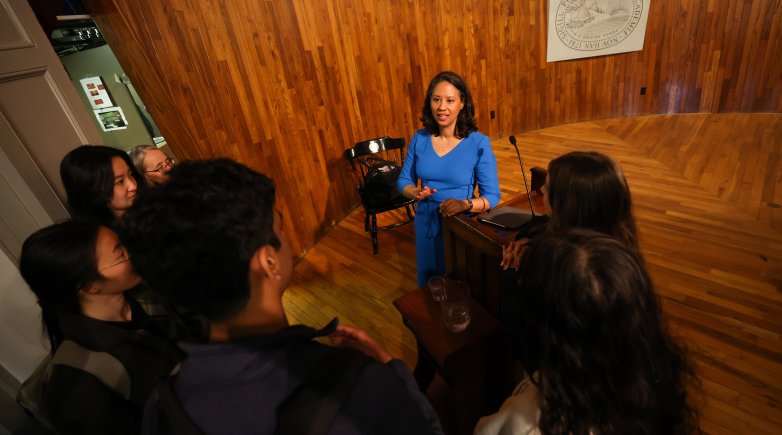Article image topper

Lorem ipsum dolor sit amet, testing in text hyperlink, sed do eiusmod tempor incididunt ut labore et dolore magna aliqua. Condimentum lacinia quis vel eros
Lorem ipsum dolor sit amet, testing in text hyperlink, sed do eiusmod tempor incididunt ut labore et dolore magna aliqua. Condimentum lacinia quis vel eros donec ac odio tempor. In pellentesque massa placerat duis ultricies lacus. Nisi vitae suscipit tellus mauris a diam. Ornare quam viverra orci sagittis. Lectus quam id leo in vitae turpis. Gravida rutrum quisque non tellus. Eleifend mi in nulla posuere sollicitudin aliquam ultrices. Facilisis sed odio morbi quis commodo odio aenean sed. Porttitor eget dolor morbi non arcu risus. Semper risus in hendrerit gravida rutrum quisque non tellus. Ultricies integer quis auctor elit sed vulputate mi sit. Morbi tincidunt augue interdum velit euismod. Nunc eget lorem dolor sed viverra. Volutpat ac tincidunt vitae semper quis lectus nulla at volutpat. Pharetra diam sit amet nisl suscipit adipiscing. Nunc lobortis mattis aliquam faucibus purus. Sagittis orci a scelerisque purus semper eget duis at. Pellentesque habitant morbi tristique senectus et netus et malesuada fames. Maecenas sed enim ut sem viverra aliquet.
Diam sit amet nisl suscipit adipiscing bibendum est ultricies integer. Orci dapibus ultrices in iaculis. Et malesuada fames ac turpis. Cursus sit amet dictum sit amet justo. Urna condimentum mattis pellentesque id nibh tortor id aliquet. Auctor augue mauris augue neque. Tortor dignissim convallis aenean et tortor at. Id leo in vitae turpis massa sed elementum. Nulla facilisi cras fermentum odio eu feugiat pretium. Orci dapibus ultrices in iaculis nunc sed augue lacus viverra. Diam quam nulla porttitor massa id neque aliquam vestibulum. Nisi vitae suscipit tellus mauris a. Blandit aliquam etiam erat velit scelerisque. Tincidunt tortor aliquam nulla facilisi. Interdum posuere lorem ipsum dolor sit amet. Ut consequat semper viverra nam libero justo laoreet. Nibh mauris cursus mattis molestie a iaculis at erat.
Scelerisque mauris pellentesque pulvinar pellentesque. Sem integer vitae justo eget magna fermentum iaculis. Scelerisque fermentum dui faucibus in ornare quam viverra. Aenean vel elit scelerisque mauris pellentesque pulvinar pellentesque habitant. Aliquam etiam erat velit scelerisque. Risus ultricies tristique nulla aliquet enim tortor at. Mattis aliquam faucibus purus in massa tempor nec feugiat. Et leo duis ut diam quam. Et malesuada fames ac turpis. Volutpat sed cras ornare arcu dui vivamus arcu felis. Fermentum posuere urna nec tincidunt praesent semper feugiat nibh sed. Vitae et leo duis ut diam quam nulla. Aliquam etiam erat velit scelerisque in dictum. Euismod nisi porta lorem mollis aliquam. Bibendum est ultricies integer quis auctor elit sed. Malesuada nunc vel risus commodo viverra. Metus dictum at tempor commodo ullamcorper a. Sodales ut eu sem integer vitae. Est lorem ipsum dolor sit amet consectetur. Integer eget aliquet nibh praesent tristique magna sit.
Scelerisque purus semper eget duis at. Tincidunt ornare massa eget egestas purus. Maecenas pharetra convallis posuere morbi leo urna. Tempor nec feugiat nisl pretium fusce id velit ut. A cras semper auctor neque vitae tempus quam pellentesque. A diam sollicitudin tempor id. Ac placerat vestibulum lectus mauris ultrices. Interdum varius sit amet mattis vulputate enim nulla aliquet porttitor. Sed risus ultricies tristique nulla aliquet enim. Nec dui nunc mattis enim ut. Eget nullam non nisi est sit amet facilisis magna etiam. Vestibulum lorem sed risus ultricies tristique nulla. Aliquam vestibulum morbi blandit cursus risus. Dignissim convallis aenean et tortor at risus. Etiam erat velit scelerisque in dictum non. Mollis nunc sed id semper risus in. Id ornare arcu odio ut sem nulla. Mi quis hendrerit dolor magna eget.

